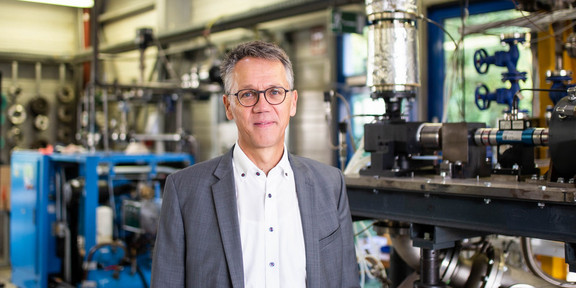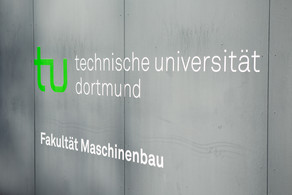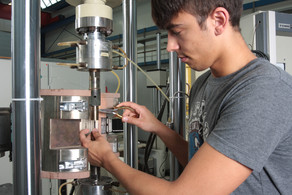Basic research for more efficient heat pumps
- News
- News

Heat pumps can both heat and cool living spaces and, when powered by renewable energy, are also more climate-friendly than gas heating systems, for example. At present, however, heat pumps cannot yet be fully optimized in terms of their energy efficiency. This is mainly due to the fact that the thermodynamic behavior of the oil-refrigerant mixtures commonly used in the compressor of a heat pump is not yet fully understood. This is where the work of the new research group 5595 entitled "Oil-refrigerant multiphase flows in gaps with moving edges - novel microscopic and macroscopic approaches for experiment, modeling and simulation", or "Archimedes" for short, under the leadership of Chemnitz University of Technology, comes in: The result should be a new calculation model for the design of compressors, which will ultimately increase the energy efficiency of heat pumps and chillers.
Understanding the behavior of a mixture of lubricating oil and refrigerant in the compressor of a heat pump or chiller poses a particular challenge for thermodynamics and fluid dynamics: "Factors such as pressure and temperature change the thermophysical behavior and thus the flow behavior, which ultimately has an influence on the heat or cooling capacity," explains research group spokesperson Prof. Markus Richter from Chemnitz University of Technology. "In this basic research project, we will precisely determine the thermophysical properties of oil-refrigerant mixtures for the first time and, based on this, develop easily applicable equations of state and models for viscosity and thermal conductivity." This is an important building block for optimizing heat pumps.
Simulating flow behavior with high resolution
Prof. Andreas Brümmer, Head of the Department of Fluid Technology at the Faculty of Mechanical Engineering in Dortmund and co-spokesperson of the research group, adds: "In order to develop a comparatively simple calculation model for the flow behavior of oil-refrigerant mixtures in compressor gaps, we need precise information on how these fluid mixtures behave thermodynamically. Based on this, we characterize the flow behaviour on a macroscopic level using laser-optical methods and on a microscopic level using high-resolution numerical simulations."
The research work is set to begin in 2024. In addition to TU Chemnitz and TU Dortmund University, TU Dresden, Friedrich-Alexander-Universität Erlangen-Nürnberg, Karlsruhe Institute of Technology, Ruhr-Universität Bochum and Rheinisch-Westfälische Technische Hochschule Aachen are also involved in the research group.







![[Translate to English:] [Translate to English:]](/storages/zentraler_bilderpool/_processed_/c/6/csm_Internationale_Studierende_aus_Ecuador_aae423f6a4.jpg)
